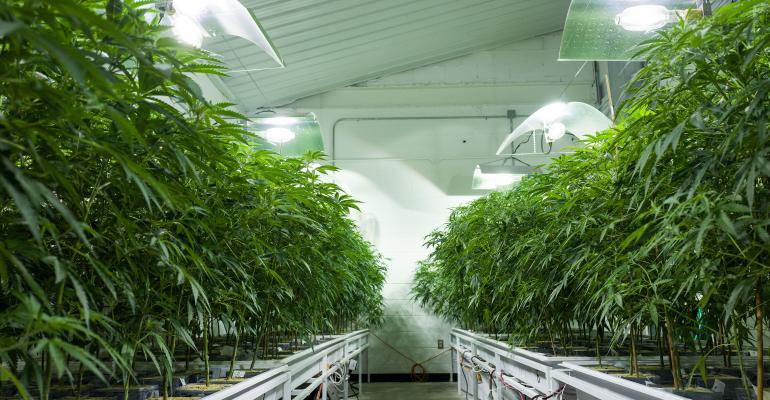Qualified Opportunity Zones (QOZs) offer investors a way to defer and reduce taxes on capital gains, while building equity in real estate assets and improving low-income, distressed neighborhoods.
Investors can defer tax payments on recent capital gains until 2026 if those gains are reinvested in an Opportunity Zone fund or business. Gains from an eventual sale of the Opportunity Zone property or qualified business will also be tax free if the investment is held for 10 years.
Additionally, if equity in the property or business is sold prior to 2026, when the program “sunsets,” the 10-year hold period required for elimination of capital gains tax will reset. And while the program deadline is 2026, the IRS will allow investors to continue claiming this tax benefit until 2048.
Despite these exceptional tax benefits, investors have been slow to invest in QOZs. Cannabis real estate projects and operations within QOZs, however, are beginning to attract investors. Unlike liquor stores, country clubs, massage parlors and tanning salons, cannabis uses are not among business operations ineligible for QOZ tax benefits, according to James Mann, tax partner in the New York office of Greenspoon Marder LLP.
Cannabis businesses are still subject to tax code 280E, which eliminates deduction of business expenses for income tax purposes for any business operation that includes Schedule I and II drug production or distribution, according to Mann. But despite cannabis’ status as a Schedule I drug, Mann, notes that “the tax benefits for investment in Opportunity Zones are unaffected by cannabis’ illegal status under federal law, so investors can be assured that they can take advantage of this tax benefit.”
Still, investors should exercise caution, according to Jim Fitzpatrick, principal at Costa Mesa, Calif.-based Solutioneers. Given that cannabis is a Schedule 1 drug, 280E states, ‘No deduction or credit shall be allowed.’” He suggests that if 280E is applied, no tax benefits would be allowed and the asset could end up as a distressed property, because the underlying uses won’t be viable.
So far, Mann’s client, Erik Murray, CEO and managing partner at Oakland, Calif.-based Oak Funds, a minority-owned business focused on investing and developing cannabis real estate, has set up a $40-million investment fund and is seeking investors for an adaptive reuse project in an Opportunity Zone in downtown Los Angeles that will include one of the state’s largest cannabis retailers.
The two-story, 50,000-sq.-ft. property, which was formerly a Honda dealership, at 1540 Figueroa St., is an attractive location for a high-end cannabis dispensary that sells popular and emerging cannabis brands, he notes, as it is across the street from the Los Angeles Convention Center and about a block away from Staples Center and the LA Live entertainment district.
The project will be divided into several uses that will include a 15,000 to 20,000-sq.-ft. cannabis dispensary and a food and beverage operation on the ground floor, with a boutique hotel or other creative use above. Once the architect completes the building redesign, Murray will begin pre-leasing.
“We’re excited for our real estate investors to roll over their capital gains to this opportunity, but it is potentially advantageous for the cannabis operator too,“ he says. Murray notes. “Because our project is in an Opportunity Zone, our dispensary operator has an extremely unique opportunity to defer and eliminate capital gains tax as the business grows.”
Another downtown Los Angeles project by BaseCanna LLC, a New York firm that develops cannabis real estate and funds cannabis entrepreneurs, is seeking investors for a 30,000-sq.-ft. adaptive reuse project in an Opportunity Zone near the Fashion District, about seven minutes away from Staples Center. The firm has established an Opportunity Zone fund to finance acquisition of the building, an additional property, and capital improvements, which must exceed the cost of the property and be completed within 30 months.
According to BaseCanna CEO Jack Boyajian, this project is already fully approved for cannabis cultivation, manufacturing or distribution. Noting that investors can participate in the real estate or cannabis operation or both, he suggested in a report by Medium that this is an opportunity to leverage cannabis to transform low-income communities that have been traumatized by the criminalization of the drug.
“Our Opportunity Zone investments will not only improve entire neighborhoods, but also provide good paying jobs to communities that have been harmed by cannabis prohibition,” he remarked.
Canna-Hub, a California-based cannabis real estate development and property management company, is building a 1.2-million-sq.-ft. cannabis business park in an Opportunity Zone in Williams, Calif., which is about an hour north of Sacramento. Company founder and CEO Tim McGraw says that it is exciting to offer cannabis operators a place to grow their businesses, but there should also be positive social and economic impact on the City of Williams.
The firm has established two Opportunity Zone funds, one to finance the ground-up development and another one to fund cannabis operations, which McGraw says will provide operators access to institutional capital by funding tenant improvements and operational build-outs.
The project is licensed for all types of cannabis operations, except outdoor cultivation, including: third-party testing labs, indoor cultivation, greenhouses, nurseries, volatile and non-volatile manufacturing, tissue culture labs, distribution and transport.
“Our campus provides huge advantages for our operators that they wouldn’t have elsewhere,” McGraw says. “The combination of savings realized from on-site security, no local tax and reduced transportation costs equates to millions of dollars in savings for our tenants.” McGraw notes that besides Opportunity Zone tax benefits, the city of Williams has no revenue tax. “This is substantial competitive and business advantage for our tenants as it lowers their overhead thus increasing margins for investors.” He adds that the average local or county tax in California is 7.6 percent, but can be as high as 25 percent.
Other benefits include shared security costs, and an on-site third-party testing lab, which eliminates the need to transport products offsite for testing.





